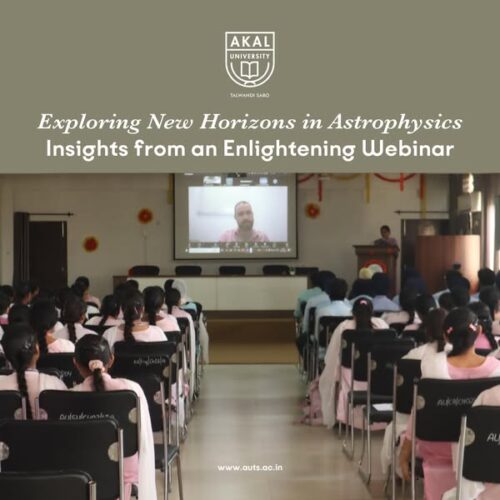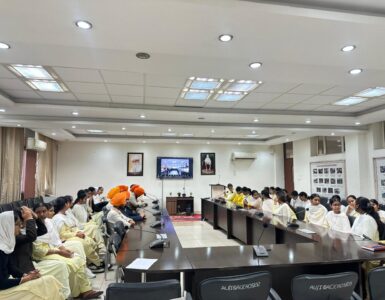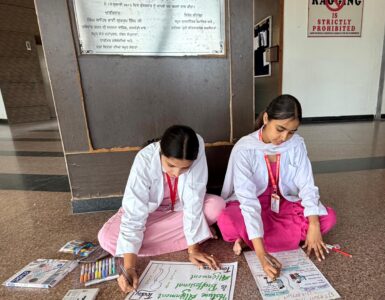Imagine hundreds of brilliant minds gathered virtually from across the globe, united by one cosmic question—What gives stars their light and life? This celestial curiosity came alive at Akal University, where the Department of Physics organized an International Webinar on the “Holy Grail” of Nuclear Astrophysics: 12C(α,γ)16O.
Global Collaboration, Cosmic Curiosity
With over 300 participants from 60+ institutions across five countries, the event reflected the growing global interest in astrophysical research. The session’s highlight was a thought-provoking lecture by Dr. Robin Smith from Sheffield Hallam University, UK, who presented his pioneering research conducted at Duke University’s HIγS facility.
Decoding the Life of Stars
Dr. Smith’s presentation unveiled new insights into the 12C(α,γ)16O reaction—a fundamental nuclear process that governs how stars evolve, how supernovae explode, and how black holes form. This “holy grail” of astrophysics is key to understanding not just the life of stars, but the very chemistry of the universe itself.
His research showcased how these stellar reactions influence the cosmic balance between life and destruction, illuminating mysteries that have fascinated astronomers for decades.
Igniting Young Minds at Akal University
For students and researchers of Akal University, this wasn’t just another academic event—it was an opportunity to touch the stars through knowledge. The webinar sparked deep curiosity, inspiring young physicists to push boundaries and explore the cosmic forces shaping our existence.
By hosting such international events, Akal University continues to bridge the gap between classroom learning and cutting-edge global research.
A Step Closer to the Universe
As the discussion concluded, one thing became clear—the quest to understand the universe is endless, but every discovery brings us closer to our cosmic origins.
The Akal University Physics Research Webinar Series continues to open new doors for learners who dare to ask big questions about the universe.
So, what’s your big question about the cosmos? 🌠





























Add comment